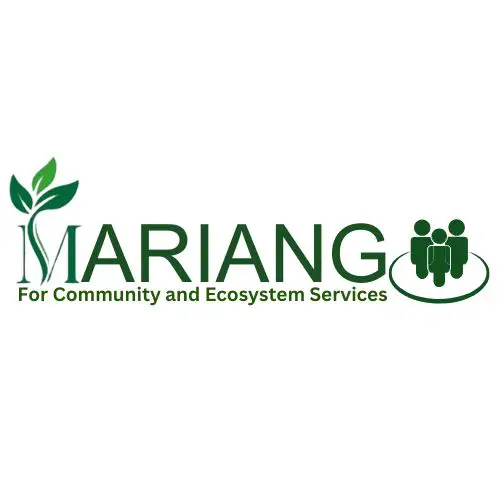Aligned with Mariang’s mission and vision, we plan to initiate the following potential projects as funding becomes available:
- 1 - Pre-primary education

📚
Pre-primary educationis delivered in
the Khasi language across all 60 villages:
Early childhood education in the mother tongue facilitates better cognitive
development and cultural identity for young learners. Providing pre-primary
Education in Khasi ensures that children build foundational skills in a
language they understand deeply. This approach fosters greater school readiness
and reduces early dropout rates that often occur due to language barriers. By
nurturing literacy and numeracy in their native language, we empower children
to succeed academically and socially within their communities. This effort is
vital to safeguard the language from disappearing
- 2 - Creation of new wildlife buffer zones within all 60 villages
- 2 - Creation of new wildlife buffer zones within all 60 villages

- 🌿 Creation of new wildlife buffer zones within the forests of all 60 villages:
The establishment of wildlife buffer zones serves as a protective barrier between human settlements and sensitive ecosystems. These zones help conserve biodiversity by providing safe habitats for native flora and fauna, reducing human-wildlife conflicts. Implementing buffer zones increases the resilience of local ecosystems against environmental threats such as deforestation and habitat fragmentation. By involving the community in managing these zones, we promote coexistence and sustainable stewardship of natural resources.
- 3 - Installation of solar-powered irrigation systems throughout the 60 villages

- ☀️
Installation of solar-powered irrigation systems throughout the 60s
villages:
Most Khasi villages lack electricity for their agricultural lands.
Solar-powered irrigation is their only viable option to water crops, which
are in dire need of irrigation due to the extreme heat caused by climate
change. Solar irrigation systems provide an eco-friendly and
cost-effective way to support agricultural activities without relying on
fossil fuels. These systems enable farmers to water their crops
efficiently, increasing productivity and crop yields while conserving
water resources. Solar technology reduces dependence on unreliable
electricity or expensive fuel-powered pumps, making irrigation accessible
and affordable. This initiative enhances food security and contributes to
climate resilience by promoting renewable energy use in rural farming
communities.
- 4 - Provision of healthcare services to remote village communities

- 🏥 Provision of healthcare services to remote village communities:
Access to quality healthcare is critical for improving overall well-being and life expectancy in remote areas. Due to the remote locations, many of our children do not receive vaccines offered by the government. Pregnant women face severe challenges, often traveling two to three hours carried on baskets by community members through muddy forest trails. Delivering healthcare services to these villages helps address common health issues, prevent disease outbreaks, and provide necessary medical treatments closer to home. It reduces the need for villagers to travel long distances to urban centers, which can be costly and time-consuming. Regular health interventions also raise awareness on hygiene, nutrition, and preventive care, fostering healthier communities.
- 5 - Skill development programs aimed at youth empowerment
- 5 - Skill development programs aimed at youth empowerment

- 💼 Skill development programsaimed at youth empowerment:
Skill development initiatives equip young people with practical knowledge and hands-on experience relevant to local economic opportunities. Training in areas such as sustainable farming, entrepreneurship, freelancing, and technology boosts their employability and potential for self-employment. Empowering youth with skills helps reduce unemployment and stimulates community development. These programs also instill confidence and leadership qualities among young participants, preparing them to contribute meaningfully to their society.
- 6 - Scholarship initiatives targeting ultra-poor students
- 6 - Scholarship initiatives targeting ultra-poor students

- 🎓 Scholarship initiatives targeting ultra-poor students:
Scholarships provide crucial financial support that enables bright but economically disadvantaged students to pursue education without burdening their families. This investment breaks the cycle of poverty by opening pathways to higher education and better career prospects. Scholarship programs create inclusive opportunities, ensuring no child is left behind due to lack of resources. Fostering education access among the ultra-poor not only benefits individuals but also uplifts entire communities through social mobility.
- 🎓 Scholarship initiatives targeting ultra-poor students:
- 7 - Integration of innovations and
- technology to enhance agricultural practices

- 🚜 Integration of innovations and technology to enhance agricultural practices:
Introducing innovative tools and technologies in agriculture boosts efficiency, productivity, and sustainability of farming methods. Technologies such as precision farming, soil sensors, and mobile extension services enable farmers to make informed decisions and optimize resource use. Innovation helps mitigate the impacts of climate change by promoting adaptive practices and conservation techniques. By modernizing agriculture, we can improve farmers’ incomes while safeguarding the environment for future generations.
